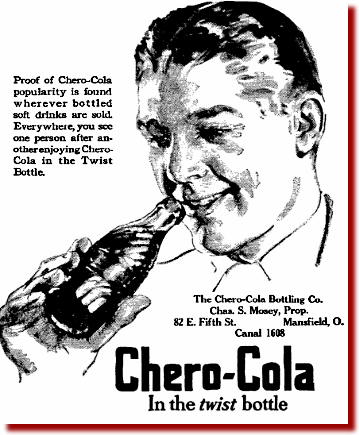
Thursday, March 2, 2006
Page 15
REMINISCING (Column)
Coca-Cola Company Attains Two Court Victories in 1921
By ROGER M. GRACE
The year of 1921 brought two significant court victories to the Coca-Cola Company—which was still exulting in its triumph the previous year in the U.S. Supreme Court. That tribunal recognized “Coca-Cola” as a protectible trademark even if, as alleged, the beverage contains nothing derived from the coca plant or the cola nut.
One win in 1921 came in the U.S. Court of Appeals of the District of Columbia. The court reversed the decision of the commissioner of patents permitting the trademark registration, over the Coca-Cola Company’s objection, of “Chero-Cola.”

Today, it is doubtful that “Chero-Cola” would be found confusingly similar to “Coca-Cola,” a name far too familiar for any moniker merely reminiscent of it to be confused with it. But 85 years ago, apparently it was different. There was evidence in the record of actual confusion.
“[I]t is quite undeniable that mistakes [in making purchases] have resulted from the use of applicant’s mark,” Chief Justice Constantine Joseph Smyth said in his opinion. (That circuit had a chief “justice” and associate “justices” until 1948 when legislation re-dubbed them “judges.”)
Smyth acknowledged that if scrutiny were lent to the names “Coca-Cola” and “Chero-Cola,” “differences will be found,” noting that the names “do not sound quite alike, and the number of letters in each is not the same.”
Nonetheless, he wrote, “these are only arguable differences, which are not enough to defeat the opposition.”
Smyth noted that the name “Coca-Cola” had been in use since 1886, and “Chero-Cola” came into existence in 1911. He suggested that the choosing of that name in 1911 was “open to the inference that the purpose was to appropriate some of opposer’s business, by producing confusion in the minds of the purchasing public.”
The other Coca-Cola Company victory in 1921 came in the Fourth U.S. Circuit Court of Appeals. The opinion by Judge John Carter Rose instructed the trial court to enjoin the use by Old Dominion Beverage Corp. of the name “Taka-Kola.”
While expressly not deciding the issue, the opinion raised the prospect that the word “cola,” in and of itself, might be the exclusive property of the Coca-Cola Company. Rose wrote:
“Plaintiff’s rights are limited at the most to two words. All the rest of infinity is open to defendant. It will be safe if it puts behind it temptation to use in any fashion that which belongs to the plaintiff. It has not done so voluntarily, and compulsion must be applied.
“It is unnecessary to say that we are deciding the case before us. Here we have found, from all the facts, both infringement of a trade-mark and unfair competition. We are not to be understood as intimating any opinion as to whether plaintiff has or has not any exclusive rights in either of the words which make up the trade-mark, when either is used separately from the other, and under circumstances in which there is no attempt by a competitor to use plaintiff’s property to plaintiff’s damage.”
The opinion alluded to the Coca-Cola Company’s success in persuading the Patent Office to reject trademark registration of “Tenn-Cola,” used by a Tennessee company. Given the lack of any conceivable confusion of the two names, the rejection presumably was premised on the notion that no outfit other than the Coca-Cola Company could use the word “cola.”
Yet, “Pepsi-Cola” was registered in 1903. According to a federal trial court opinion in 1940, “Since Coca-Cola appeared, there has been a veritable flood of drinks of this type, as evidenced by the fact that there have been no less than 143 registrations in the United States Patent Office of names embodying the word ‘cola’ as a suffix.”
Rose’s opinion could well be viewed an invitation to the Coca-Cola Company to seek to judicially establish its exclusive right to the word “cola.” It tried. It lost—as you might well surmise from the various “colas” on the market today. There will be more next week about its efforts to appropriate that word.